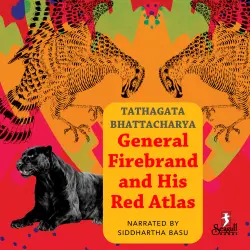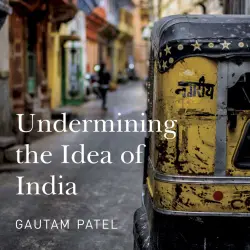
War Primer
Alexander Kluge
Unabridged
2 horas 17 minutos
Nota: La reproducción de los audiolibros o de las obras de audio en las respectivas plataformas, por ejemplo Spotify, puede generar gastos. Lismio no tiene ninguna influencia sobre qué audiolibros y obras de audio están disponibles en el servicio.
Algunos artículos contienen enlaces de afiliados (marcados con un asterisco *). Si hace clic en estos enlaces y compra productos, recibiremos una pequeña comisión sin coste adicional para usted. Su apoyo ayuda a mantener este sitio en funcionamiento y a seguir creando contenidos útiles. Gracias por su apoyo.
Este audiolibro no está disponible en tu territorio.
Completo
2 horas 16 minutos
Nota: La reproducción de los audiolibros o de las obras de audio en las respectivas plataformas, por ejemplo Spotify, puede generar gastos. Lismio no tiene ninguna influencia sobre qué audiolibros y obras de audio están disponibles en el servicio.
Algunos artículos contienen enlaces de afiliados (marcados con un asterisco *). Si hace clic en estos enlaces y compra productos, recibiremos una pequeña comisión sin coste adicional para usted. Su apoyo ayuda a mantener este sitio en funcionamiento y a seguir creando contenidos útiles. Gracias por su apoyo.
De la editorial
A profound exploration of the enduring impact of war in the wake of the Russian invasion of Ukraine.
"War is back again." So begins Alexander Kluge's latest book, prompted by a war of aggression that, though being waged in Europe, is of global importance. Blending simple stories with multimedia and reflecting on human responses and hope, the author does not aim to take sides nor make an appeal. Rather, he is concerned with what he calls "mole war," the tenacious and often subterranean survival of war-what war makes of people and what life of its own it is capable of.
Kluge's book is based on an iconic model, the primer, and named after a famous one: Bertolt Brecht's. Here we find simple stories underpinned with montages, film stills, and sequences. The author was ten years old when-sitting at his school desk and with his finger on the map-he followed German tanks on their journey to Stalingrad. In the time between then and his ninety-first birthday in February 2023, this chronicler of emotions has studied the costumes of war again and again: War is mortal but does not die quickly. How can we respond to its demands?
"War is back again." So begins Alexander Kluge's latest book, prompted by a war of aggression that, though being waged in Europe, is of global importance. Blending simple stories with multimedia and reflecting on human responses and hope, the author does not aim to take sides nor make an appeal. Rather, he is concerned with what he calls "mole war," the tenacious and often subterranean survival of war-what war makes of people and what life of its own it is capable of.
Kluge's book is based on an iconic model, the primer, and named after a famous one: Bertolt Brecht's. Here we find simple stories underpinned with montages, film stills, and sequences. The author was ten years old when-sitting at his school desk and with his finger on the map-he followed German tanks on their journey to Stalingrad. In the time between then and his ninety-first birthday in February 2023, this chronicler of emotions has studied the costumes of war again and again: War is mortal but does not die quickly. How can we respond to its demands?





















